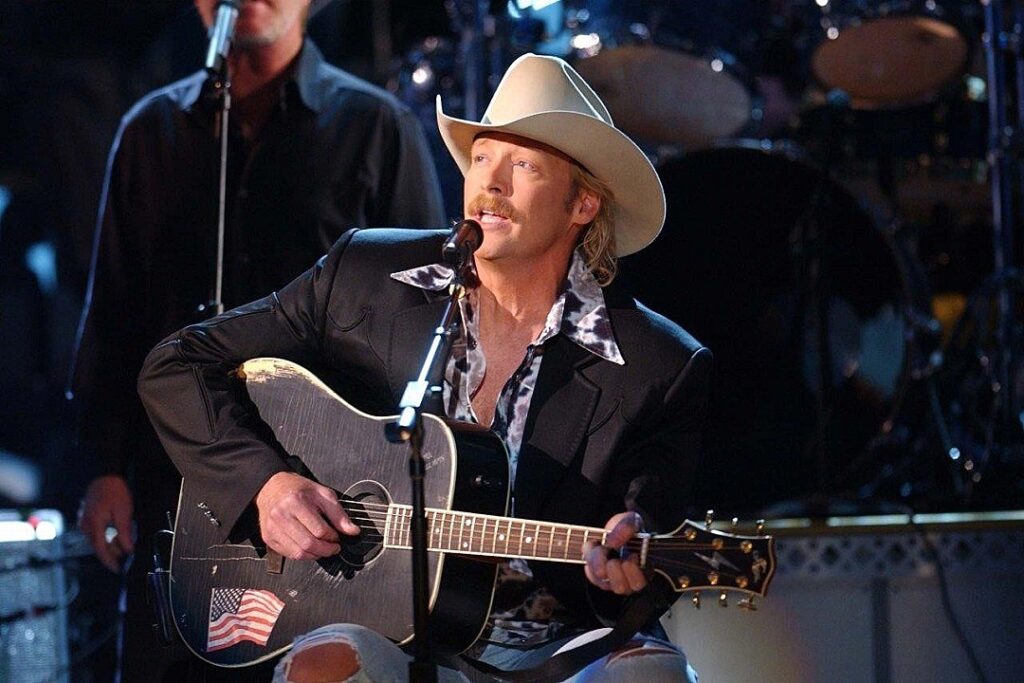
A Simple Plea for Emotional Shelter in a World That’s Moved On
When Alan Jackson released “Don’t Rock the Jukebox” in April 1991 as the lead single from his sophomore album, Don’t Rock the Jukebox, he delivered more than just a cleverly crafted honky-tonk anthem—it was a clarion call for emotional honesty, dressed in boots and twang. The song reached No. 1 on the Billboard Hot Country Singles & Tracks chart and helped cement Jackson’s status as one of the defining voices of ’90s country, marrying traditional sensibilities with contemporary charm. Its success set the tone for an album that would not only top country charts but also go on to triple platinum certification, signaling Jackson’s staying power in a genre often torn between heritage and evolution.
Beneath the song’s easy swagger and barroom bounce lies a tender emotional truth. Written by Alan Jackson, Roger Murrah, and Keith Stegall—the latter also producing—the song captures a moment of raw vulnerability with the clarity of a neon-lit confessional. The premise is disarmingly simple: a man sitting alone at a jukebox, nursing heartache, gently asks the DJ not to play rock ‘n’ roll. It’s not because he dislikes it—it’s because his emotional state demands something slower, more mournful. “My heart ain’t ready / For the Rolling Stones,” he sings with a plaintive sincerity that cloaks pain in polite Southern restraint.
That lyric—casually name-dropping one of rock’s most raucous acts—does more than just set up a genre contrast; it positions country music as an emotional refuge, a safe harbor for wounded souls. The jukebox becomes both literal and metaphorical—a selector of soundtracks but also an altar where broken hearts go to pray. In this way, “Don’t Rock the Jukebox” isn’t just about music preferences; it’s about how we use music to process grief, to regulate emotion, to sit with sorrow when words alone won’t do.
The musical arrangement mirrors this duality with deft precision. The track opens with a walking bass line and twinkling piano licks that recall classic honky-tonk styling—Ernest Tubb by way of ’90s radio polish. Jackson’s voice is warm but tinged with resignation, anchored in tradition yet unafraid to wink at modern listeners. There’s humor in the title, yes—but it’s the kind that comes after tears, not before.
In choosing country over rock within the confines of this small story, Jackson makes an implicit argument for the enduring power of narrative songwriting. Country music—at its best—is about lived experience rendered with poetic restraint, and “Don’t Rock the Jukebox” exemplifies that ethos. It reveres heartache without glamorizing it; it respects music’s role not just as entertainment but as communion.
More than three decades later, the song remains emblematic of Alan Jackson’s broader artistic mission: to honor country music’s roots while keeping it vital and accessible. In doing so, he gave us more than just a hit—he gave us a hymn for anyone who has ever sat alone at closing time and found solace in someone else’s story spun through speakers and vinyl grooves.
So when Jackson asks us not to rock the jukebox, he isn’t rejecting change—he’s simply asking for understanding. For one more slow song. For space to grieve beneath the glow of neon blues.